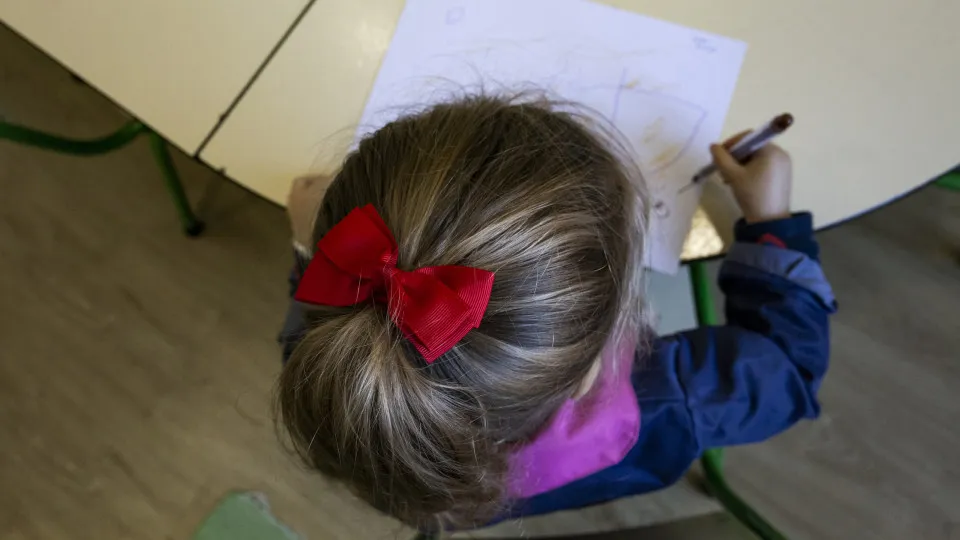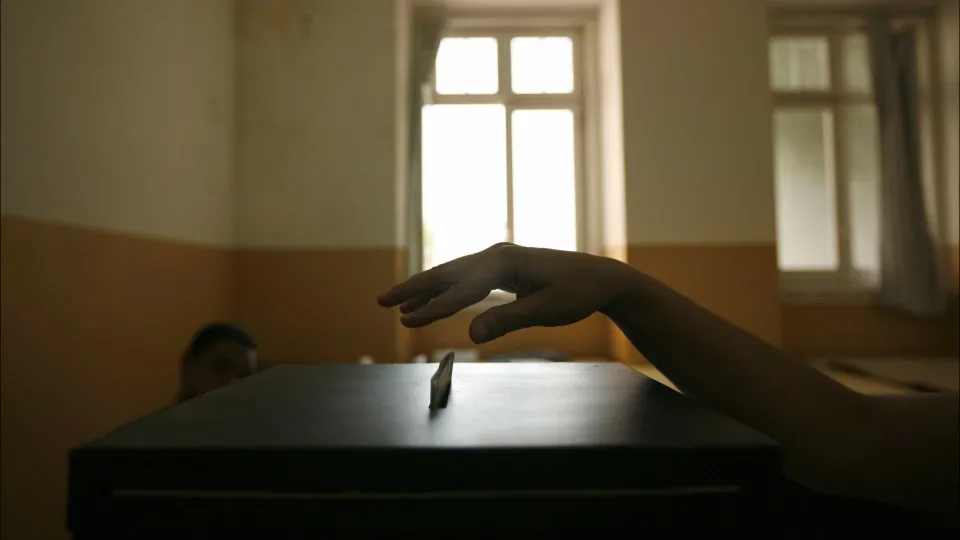
The Ministry of Education, Science and Innovation (MECI) has introduced new rules for assigning teachers to the Commissions for the Protection of Children and Youth (CPCJ), including the elimination of statutory mobility. This is aimed at addressing the shortage of teachers in schools. However, several commissions across the country warn of potential losses in experience and a decrease in response to risk situations.
In July, the ministry announced new guidelines for the statutory mobility of career teachers, which will allow hundreds of teachers to return to public schools next academic year. This is considered necessary due to the “scarcity of teachers” and the “need to ensure that all students have classes,” justifying “the adoption of more stringent and rigorous criteria.”
While recognizing that “the roles performed by teachers in mobility are widely recognized as an asset to various organizations working directly with children and youth,” the Ministry of Education warned that “they should not overshadow the importance of ensuring teachers for all students and successful school pathways in schools.”
At the same time, the Directorate-General of School Administration (DGAE) circulated an informational note stating that, “in the context of service distribution, the Director, in coordination with the CPCJ, appoints a faculty member from the AE/EnA board, either full-time or part-time, to represent the education area in the Commission for the Protection of Children and Youth (CPCJ), appointing a teacher with a profile appropriate to the nature of the role.”
The head of each grouping must also “prioritize teachers to whom it has not been possible to assign curricular components or exempt from teaching/work duties” and “avoid assigning teachers from a recruitment group where placement difficulties have been identified.”
“Situation prevents addressing all danger and risk situations”
One of the most concerning cases is the CPCJ of Montijo, which, days after the government’s announcement, warned of “serious risks in the commission’s functioning from August.” Currently, it is without a president and has lost two representatives from the Education sector.
“There was a decision by the Ministry of Education, and we lost two representatives in the Education area,” explained Débora Rocha, secretary of CPCJ Montijo. The commission is “unable to respond” to cases and has about “150 cases without a professional.” Urgent cases are being referred to the Public Prosecutor’s Office (MP).
“We are deeply concerned,” Débora Rocha lamented. In a statement, the CPCJ of Montijo highlighted that it “continues to face a complex situation” and that “this reality impacts daily operations,” yet it promised to ensure that “no rights of our children and youth are neglected.”
The CPCJ of Alenquer is “still without an Education representative and without a president” since September 1. “With the sudden departure of the Education representative, who was full-time and simultaneously president, the promotion and protection cases under her supervision lost their assigned manager, and new cases coming into the CPCJ daily can no longer count on that professional,” the commission noted, stressing that “this situation makes it impossible to effectively address all danger and risk situations.”
The CPCJ of Amadora lost one of its technical supports and only learned about two weeks ago that two representatives from the Ministry of Education could continue in their roles.
“Considering our case load, with a monthly average of about a thousand cases, it is expected that there is one Education representative and two technical supports, and one technical support is still lacking,” explained Joana Pinto, president of CPCJ Amadora.
Similarly, the CPCJ of Baião highlighted that the measure “represents a significant setback in protecting the rights” of children and youth and emphasized that “teaching professionals are not mere administrative staff,” but instead “specialized professionals, with training, experience, and sensitivity to manage risk and danger situations that require continuous and humane oversight.”
Carla Barão, president of the CPCJ Portimão, stated she was “caught by surprise” by the “somewhat confusing” process but managed to keep her Education representative “by insisting to the grouping director.” Nonetheless, she lost technical support.
In Portimão, there were no delays in processes because “the technical support person is extremely responsible” and continues to provide support “on their own will.” “There are 50 cases only not left adrift because the individual is extremely responsible,” Carla Barão emphasized.
The CPCJ of Albergaria-a-Velha, although “fully operational,” regretted “the lack of clear communication from the outset” and expressed “solidarity with colleagues.” Filomena Bastos, president, stated, “In cities with more than one large grouping, there should be a meeting among directors to designate the person who has the appropriate profile” for taking on the role.
“Great concern.” CPCJ question whether teachers have the “appropriate profile”
The appointment of a teacher without the “appropriate profile” or without training in child protection is one of the CPCJ’s main concerns across the country.
“We are concerned that teachers removed from teaching duties—often separated due to physical, psychological, and mental health reasons—might not have the conditions or profile to work in a protection commission, which is a highly demanding role,” Joana Pinto from CPCJ Amadora stressed.
The CPCJ of Alenquer, viewing the Ministry of Education’s changes with “great concern,” warned that groupings “must consider whether the teacher has the profile suitable for the CPCJ role, which demands great psychological resilience to work with challenging life situations faced by children and youths.”
The CPCJ of Leiria lamented that “professionals with the appropriate profile and trained to work in a CPCJ, given the complexity, demands, and mission sense this work requires, are ‘taken’… by guidelines arriving without prior notice.”
National Commission “monitors” the appointment of representatives
Asked about the new orientations from the Ministry of Education, including whether there are guarantees that CPCJs will have Education representatives with the appropriate profile and availability, the National Commission for the Promotion of the Rights and Protection of Children and Young People (CNPDPCJ) responded only that “the Ministry of Education, Science and Innovation has changed its form of representation in the Commissions for the Protection of Children and Youth, transferring this responsibility to the directors of groupings and schools, who are managing the situations in coordination with the CPCJs.”
“All commissions will have a representative from the MECI, as before. The appointment process for Education area representatives is in progress, duly followed by the CNPDPCJ,” it added.
Government seeks “balance between CPCJ needs and schools’ service requirements”
The ministry led by Fernando Alexandre left several questions unanswered. However, in a response to a parliamentary question 291/XVII, from the PCP, the minister’s office argued that “the assignment of teachers” to CPCJs “should be periodically reviewed, balancing school needs, the scarcity of teaching resources, and the continuity of teaching response, respecting rigorous geographic balance criteria, ensuring that it does not compromise schools’ normal functioning.”
Additionally, it highlighted that four out of each group of teachers allocated to CPCJs last year came from the primary cycle and special education, two recruitment groups with the greatest shortages.
“Therefore, it is important to reinforce the need for more rigorous and considered management of these mobilities, ensuring balance between the CPCJ needs and schools’ service demands,” it reiterated.
Petition “in defense of the continuity of CPCJ teachers” launched
More than 1,400 people have signed a petition “in defense of the continuity of CPCJ teachers and against the end of statutory mobility.”
The petition expresses “deep concern and opposition” to the Ministry of Education’s changes, calling for the “immediate suspension of the new orientation’s application” and the “opening of a process of consultation and dialogue with the CNPDPCJ and local CPCJs.”
“The Ministry of Education has a duty to protect, not undermine, the network that guarantees the fundamental rights of children at risk. Therefore, we call for the reversal of this decision and the preservation of the integrity of CPCJ as institutional, technical, and ethical co-responsibility structures,” it states.




